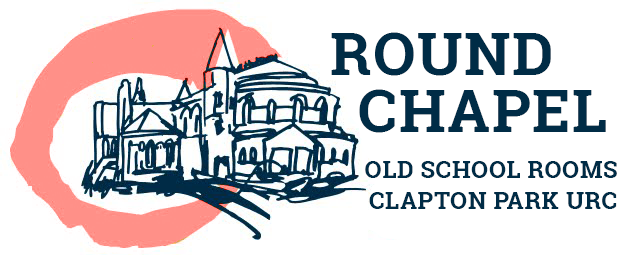Clapton Park United Reformed Church is a vibrant community centre and church driven by the values of social justice, inclusiveness, diversity, partnership, hospitality, creativity & hope.
We are based in the heart of Hackney, one of the most socially diverse places in the United Kingdom with 88 languages spoken in the borough. In the past decade public services and schools have gone from the worst in the country to amongst the best. There has been 40% business growth since 2010 and the population has grown by a third since 2001. However, Hackney still has significant challenges with unacceptably high levels of poverty and growing inequalities with average and underlying incomes in the borough remaining relatively low. Housing remains one of the biggest issues, with house process more than doubled in the last 10 years, making buying a home unaffordable for most residents. Latest estimates from End Child Poverty (2018) rank Hackney 5th in the country with 41% of children living in households in poverty. A significant number of local families are struggling to make ends meet which puts huge pressure on parents and their children.
We open our building to serve the local community, offering a place of worship, a safe space for children and families to play and be supported, a place for the homeless and those living in vulnerable housing situations to receive help and practical advice, a space for people to work, to be creative and to engage with local people tackling some of the issues that the community face.
Our History
Historically known as the Round Chapel our origins lie in the strong nonconformist and dissenting traditions of Hackney in the nineteenth century. Throughout the nineteenth century the church went from strength to strength at a time when Hackney was also transforming from a semi-rural village on the edge of London to a suburb of the growing Victorian metropolis. In 1871 the Round Chapel was built to house a growing congregation. Even the architecture, now noted to be one of the finest examples of nonconformist architecture, reflected the growing dissenting culture to not conform to the accepted idea of how a church should look. However, the Round Chapel did not have such a happy twentieth century. As music halls and picture houses opened, so church congregations began to decline. The Round Chapel was not left unaffected, and the rapidly shifting demographics of people meant a steady decline in the congregation.
Over twenty years ago the Round Chapel was a dilapidated and empty building. When Doug Gay arrived as a new minister in 1995, he came to a tiny and exhausted congregation in a falling down building. Doug says “The congregation knew we needed to change and that we had become isolated from the community – that to renew our mission we needed to learn that we had more in common with our community.” The small congregation of Clapton Park URC at the time had the vision to do and be something different. In 1997 the Round Chapel and Old School Rooms was reopened after a major restoration programme and the building was transformed into a living community space. This was a pivotal moment in the life of the small congregation at the Round Chapel who took the bold decision to relinquish a huge Victorian chapel and make the Old School Rooms their home for the congregation, and to open up the space for the local community and making a renewed commitment to the local neighbourhood.
In 1997 the Round Chapel Neighbourhood Project was established. As a church-based community project, it worked in partnership with people of all faiths and none, to improve lives and build community in Clapton. It was through this community development work, led by Chris Lawrence and Doug Gay that a food co-op and credit union were set up, a parent and toddler group and an early years training programme (pre Sure Start!). A few years later in 2000 the Round Chapel Community Nursery was founded. Responding to social issues was not the only focus, as hospitality was also a crucial part of building community. The monthly community meal drew together local residents of many different backgrounds and ages and providing space for connections and relationships to be developed over food.
Since 2014 we have expanded our community programme, developing a strategic focus on working with local families and people who are homeless or living in vulnerable housing situations. Our projects include the Urban Table, Clapton Community Drop-in and the Families Project which offers a range of services and support to families with children in their early years.
